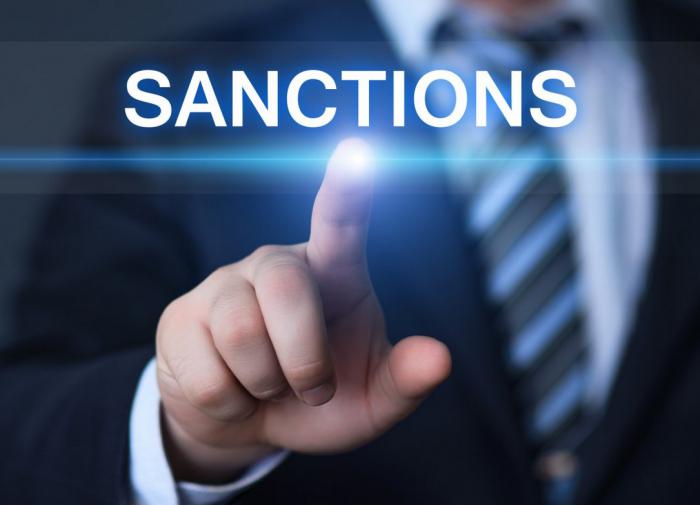European politicians believe that Russia should be punished for poisoning Alexei Navalny. Many Russians support them.

Russia threatens to terminate dialogue with EU
At a press conference with Russian Foreign Minister Sergei Lavrov, Danish Foreign Minister Jeppe Kofod announced that Denmark would join EU sanctions on Navalny. It just so happens that the Danish official came to Russia to build relations with the Russians, having a grudge against them. Lavrov joked by saying "we are going to dinner now." Even though the dinner remarks could be interpreted as "we don't care," the remarks from the Foreign Minister of Denmark came as a direct insult that deserved a reprimand, if not a cancellation of the results of the visit.
Russian Foreign Minister Lavrov came to his senses a day later.
"If the European Union does not understand the need for a mutually respectful dialogue with Moscow, then Russia will be forced to stop communicating with the EU," the Russian Foreign Minister said, speaking at the Valdai International Discussion Club.
The minister further referred to the statement from the head of the European Commission, Ursula von der Leyen, who believes that "it is important to part with the illusion that Russia, under the current leadership, will ever be able to restore the status of EU's geopolitical partner."
"This is a very serious statement from the mouth of the top official of the European Commission," Lavrov said, adding that he considers Russia should "stop looking back at those assessments."
Russia does need to look back to them. Moreover, Russia should respond, but we seem to have a problem here.
The European Union, as expected, imposed sanctions against six Russian officials and the State Research Institute of Organic Chemistry and Technology in connection with the poisoning of Alexei Navalny with a Novichok-class chemical warfare agent. According to the document published in the official journal of the European Union, the sanctions are being introduced "against the use and proliferation of chemical weapons."
The sanctions have thus been imposed on the head of internal policy department of the presidential administration Andrei Yarin, first deputy head of the presidential administration Sergei Kiriyenko, presidential aid in the Siberian Federal District Sergei Menyailo, FSB chief Alexander Bortnikov, Deputy Defense Minister Pavel Popov and Alexei Krivoruchko. Great Britain joined the European sanctions, having duplicated the blacklist.
The imposed restrictions bar the above-mentioned officials from entering the EU and the UK, freeze their assets and impose a ban on financial transactions.
However, in order to impose those restrictions, one should have found a reasonable connection between specific individuals and Navalny's poisoning. Otherwise, any of the persons involved in the new blacklist can appeal the sanctions at court.
It is doubtful that the situation may develop like that, because Russian prosecutors, for example, are not allowed to have assets outside Russia, nor can they travel to 173 countries of the world.
Sanctions are nothing but casus belli
We would like to ask different questions to European diplomats. Where is the European value of the rule of law? Where are the proofs? Where is the trial in connection with the poisoning of Navalny? After all, the West can quickly arrange trials extraterritorially whenever necessary given that the jurisdiction of many Western countries is seen as extraterritorial.
Obviously, in Europe these questions will remain unanswered, because they are not allowed to. The European parliamentarism, its adherence to international law is just a picture for the layman - all decisions are made in advance. The reason is simple: this is a classic attempt to hold back Russia's development. The West had tried to contain the Russian Empire, then the USSR, and now the Russian Federation. Western politicians can only be happy with Yeltsin's Russia of the 1990s - obedient, impoverished, plundered and sold for "Bush's legs."
The new sanctions have been furnished nicely - they are supposed to restore justice. At the same time, civilians are being killed in Nagorno-Karabakh for two weeks now, and we do not see any sanctions being imposed either on Azerbaijan's Ilham Aliyev or Armenia's Nikol Pashinyan. Why? The West is perfectly OK with the war in Nagorno Karabach, because this war carries threats to Russia. Now let us take a look at Syria - Syrian President Bashar al-Assad remains under tough sanctions, because his actions make Russia stronger.
Sanctions are not meant to restore any form of justice - sanctions appear to be another form of war. The West formally declared war on Russia long ago, but the Russian authorities respond very vaguely to that. For example, after Navalny expressly and clearly accused Russian President Putin of poisoning him, Russia should have filed a libel case against Navalny.
Russian people welcome sanctions against Russian officials
The sanctions have a positive aspect too. They show that Russia is economically weak because it cannot respond adequately to them. Russia has no levers of pressure on the West, except for the nuclear shield, and Vladimir Putin voices such a threat at times. This is a positive aspect in terms of knowing what we need to work on.
It goes about possible measures to deprivatize domestic industries that extract natural resources for export. Russia could nationalize elites, get rid of the US dollar peg in her economy and establish a new Union State with those who would like to join it: Transnistria, Donbass, South Ossetia. Belarus. Kyrgyzstan and so on and so forth. One should also form the laws that ensure the succession of power in the direction desirable for the people, rather than the oligarchs.
Another positive aspect about the sanctions is that personal sanctions against Russian officials make them feel like they are in the shoes of those who were three years away from retirement in 2018, but now have to work for six more years as a result of the pension reform.
Therefore, many Russians can only welcome the sanctions that target Russian officials.
No comments :
Post a Comment